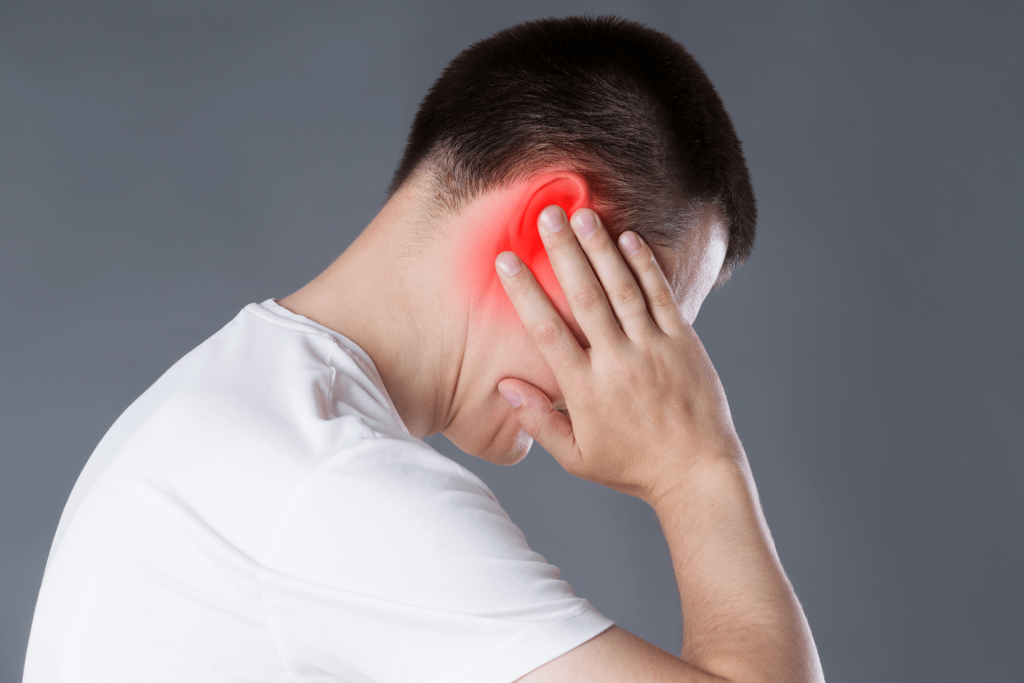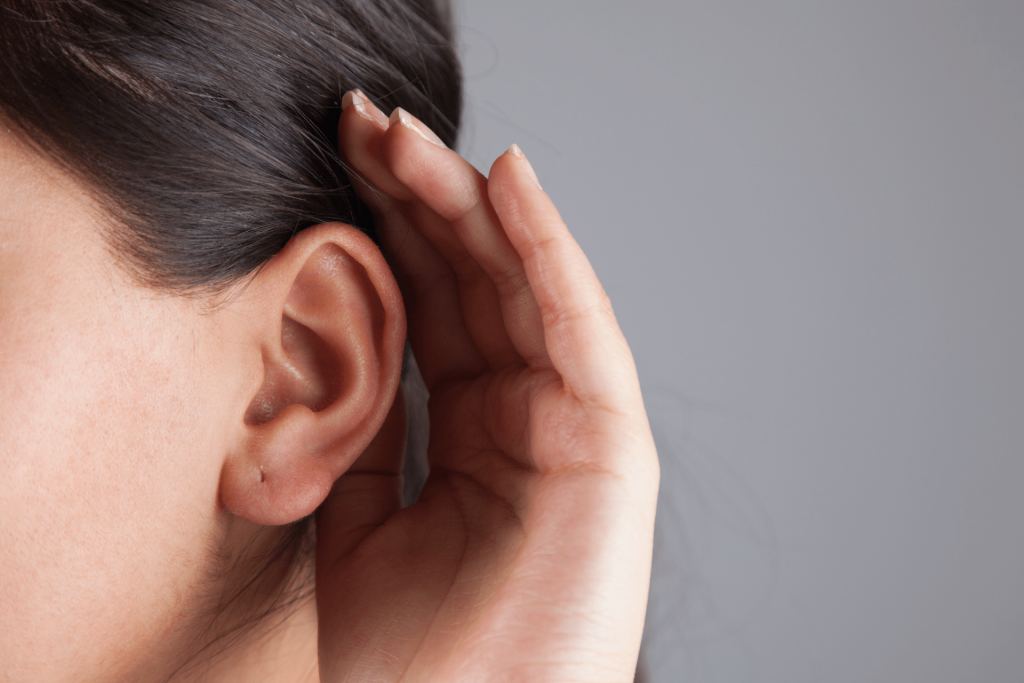
Article by Hearing Partners, contributed by Soh Lee Lee, Senior Clinical Audiologist at Hearing Partners
Have you ever experienced pain in your ears when swallowing? This pain may range from a mild annoyance to a sharp discomfort that can interfere with everyday activities like eating and drinking. If you experience this sensation, understanding the underlying causes can help you identify the problem and find relief.
Read on as we share the possible reasons why your ears hurt when you swallow and when to see a doctor. Additionally, learn about some potential treatment and pain relief methods, and get answers to your frequently asked questions.
Reasons Why Your Ears Hurt When You Swallow
There are several potential causes of ear pain when swallowing. Here are some of the most common reasons:
Ear infections
Ear infections, particularly middle ear infections (otitis media), are a common cause of ear pain when swallowing. These infections occur when bacteria or viruses cause inflammation and fluid buildup behind the eardrum. Symptoms often include:
- A feeling of fullness in the ear
- Hearing difficulties
- Fever
- Drainage from the ear
Children are more prone to middle ear infections because their Eustachian tubes are smaller and more horizontal than those of adults. This makes it easier for bacteria and viruses to enter and block the tube, leading to fluid buildup and infection in the middle ear. If the infection persists or worsens, it could lead to more serious complications such as hearing loss.
Throat infections
Inflammation in the throat caused by infections such as tonsillitis or pharyngitis can also cause your ears to hurt when swallowing. Symptoms of a throat infection may include:
- Sore throat
- Fever
- Swollen lymph nodes in the neck
Sinus infections
When the sinuses become inflamed, they can block the Eustachian tubes, preventing proper drainage and causing pressure and discomfort in the ears. You may also experience pain in the ears when swallowing. Other symptoms of sinus infections (sinusitis) include:
- Nasal congestion or runny nose
- Facial pain
- Headache
- Postnasal drip
Temporomandibular Joint (TMJ) disorder
The temporomandibular joint (TMJ) connects the jaw to the skull and plays a key role in chewing and speaking. TMJ disorder can cause pain and discomfort in the jaw, face, and ears, with accompanying symptoms such as:
- Locking of the temporomandibular joints
- Headache
- Neck pain
- Eye pain
Foreign objects in the ear
In some cases, an object lodged in the ear canal can cause ear pain when swallowing. This is more common in young children who may insert small objects such as beads into their ears.
When to See a Doctor

Persistent pain in the ear when swallowing can indicate an underlying condition requiring medical attention such as a chronic ear infection. See a doctor for proper diagnosis and treatment if your condition doesn’t improve after a few days.
Moreover, if you experience any of the following symptoms in addition to ear pain, see a doctor immediately:
- High fever
- Drainage from the ear
- Dizziness or balance issues
- Hearing loss
- Tinnitus (ringing in the ears)
- Vomiting
- Swelling in or around the ear
How to Treat or Relief Ear Pain
Treatment for ear pain depends on the underlying cause. For example, your doctor may prescribe medications for throat infections or antibiotic ear drops for ear infections. You may also try some home remedies to alleviate discomfort such as:
- Pain relievers: Over-the-counter medications like ibuprofen or paracetamol can help reduce pain and inflammation.
- Warm compress: Applying a warm compress to the affected ear may provide relief.
- Nasal decongestants: If sinus congestion is causing ear pain, a decongestant may help open the Eustachian tubes.
Finding Relief From Pain in the Ears When Swallowing
Pain in the ears when swallowing can be uncomfortable and disruptive, but understanding its potential causes and knowing when to seek medical advice can help you find relief.
Addressing the underlying issue is the key. With the right treatment, most cases of ear pain can be resolved effectively, allowing you to return to your daily activities without the pain. If you experience persistent or worsening symptoms, don’t hesitate to consult a doctor as soon as possible.
FAQs About Ear Pain When Swallowing
How will the doctor diagnose ear pain?
The doctor will assess your symptoms and medical history, and perform a physical examination of your ears, throat, and sinuses. They may also use an otoscope to check for signs of infection or fluid buildup in the ear. If necessary, further tests such as swab tests, sinus imaging, or hearing tests may be conducted.
Are there complications of leaving ear pain untreated?
In some cases, untreated ear pain can lead to complications such as:
- Chronic pain
- Hearing loss
- Ruptured eardrum
- Meningitis
- Worsening TMJ disorder
Seeking timely medical care can prevent these complications and ensure proper treatment.
Can I prevent ear pain when swallowing?
While not all cases can be prevented, you can reduce your risk by:
- Practising good personal hygiene like washing your hands regularly
- Avoiding allergens, where possible
- Avoiding ear digging using Q-tips, ear picks or fingers etc.
- Quitting smoking to prevent irritation of the throat and Eustachian tube
- Seeking treatment for sinus or throat infection promptly

